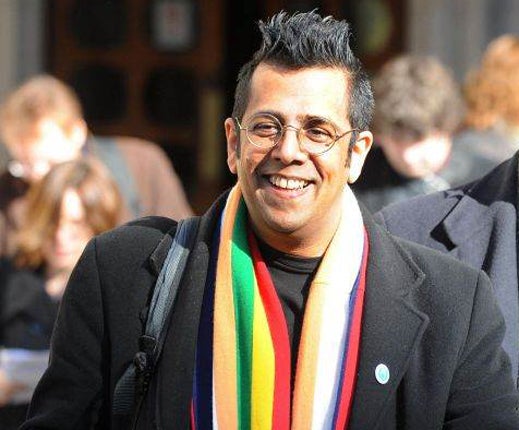Science writer wins landmark libel case

Your support helps us to tell the story
From reproductive rights to climate change to Big Tech, The Independent is on the ground when the story is developing. Whether it's investigating the financials of Elon Musk's pro-Trump PAC or producing our latest documentary, 'The A Word', which shines a light on the American women fighting for reproductive rights, we know how important it is to parse out the facts from the messaging.
At such a critical moment in US history, we need reporters on the ground. Your donation allows us to keep sending journalists to speak to both sides of the story.
The Independent is trusted by Americans across the entire political spectrum. And unlike many other quality news outlets, we choose not to lock Americans out of our reporting and analysis with paywalls. We believe quality journalism should be available to everyone, paid for by those who can afford it.
Your support makes all the difference.A controversial and expensive legal battle which threatened to curtail the freedom of expression of scientists and academic writers has ended in victory for campaigners fighting for a relaxation in Britain's strict libel laws.
The science writer Simon Singh had gone to court to defend an article published in a newspaper in which he said the professional body which represents chiropractors "happily promotes bogus treatments".
But yesterday the British Chiropractic Association (BCA) announced that it no longer intended to pursue the case after the Court of Appeal ruled that Mr Singh would be able argue that his words were "fair comment".
Freedom of speech campaigners welcomed the decision as a triumph of common sense which would open up scientific debate in the UK.
Mr Singh, who has lost two years of his career and still faces court hearings over the costs of the case, described the development as "brilliant" but added: "It is extraordinary that this action has cost £200,000 to establish the meaning of a few words."
He said after the case yesterday: "It still makes me angry that our laws encourage such ludicrous libel suits. English libel law is so intimidating, so expensive, so hostile to serious journalists that it has a chilling effect on all areas of debate, silencing scientists, journalists, bloggers, human rights activists and everyone else who dares to tackle serious matters of public interest."
Tracey Brown, of Sense About Science, said: "Perversely, the BCA have proved an important point by bringing this case – that we need a public interest defence that can protect discussions of research. At the moment we have laws that do the opposite."
The Liberal Democrats have pledged to bring in laws to ensure greater protection for academic writing and public-interest journalism and Labour has drawn up draft reforms on defamation rules.
The decision to end the litigation follows the Court of Appeal decision on 1 April to overturn Mr Justice Eady's finding at first instance that an article in which Dr Singh said the BCA "happily promotes bogus treatments" was a statement of fact. The Court of Appeal held that what Dr Singh had written was a statement of opinion which meant that the writer would be able to use the fair comment defence in the libel action.
Dr Singh's article had appeared on a page marked "Comment and Debate" in The Guardian in April 2008. In it, he criticised chiropractice and the BCA's claims that its members could help treat children with colic, sleeping and feeding problems, ear infections, asthma and prolonged crying "even though there is not a jot of evidence".
Join our commenting forum
Join thought-provoking conversations, follow other Independent readers and see their replies
Comments